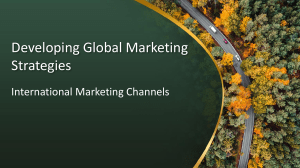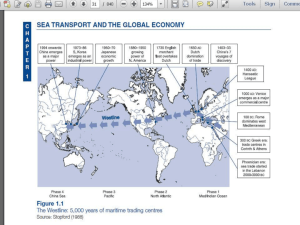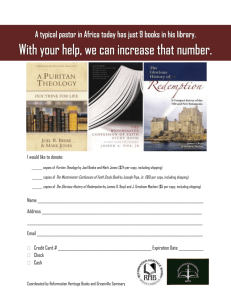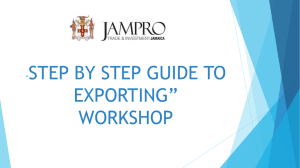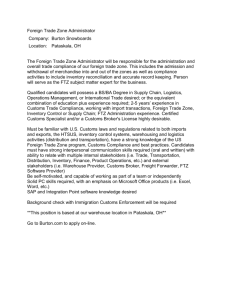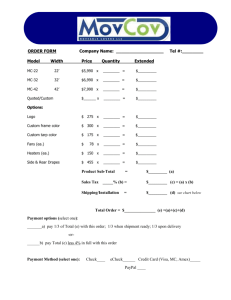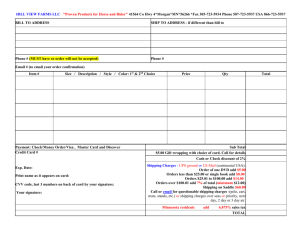File
advertisement
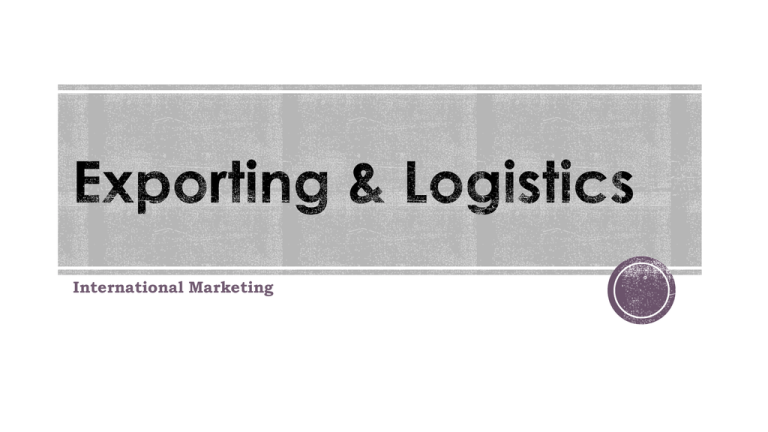
International Marketing 1. A long channel of distribution will have multiple intermediaries 2. Logistics takes into account multiple aspects of channel management including order processing & transportation of products 3. Companies use Just-In-Time Inventory as a way of stockpiling merchandise so that they always have ample amount of merchandise on-hand 4. A channel captain is always the manufacturer of a product 5. The total cost concept is the same thing as production costs. 6. Agents & brokers are common examples of Export Management Companies (EMCs) 7. Companies can gain a competitive advantage via their distribution channel 4/4, 1968 Martin Luther King Jr. Assassinated 4/5, 1994 Kurt Cobain suicide 4/14, 1865 President Lincoln Shot 4/15, 1912 Titanic Sinks 4/15, 2013 Boston Marathon Bombing 4/16, 2007 Virginia Tech Shooting 4/19, 1995 Oklahoma City Bombing 4/19 1993 Waco, Texas 4/20 Facts 1836 Wisconsin became a state 1889 Adolf Hitler’s Birthday 1912 Fenway Park opened in Boston 1916 Wrigley Field opened in Chicago 1920 Tornado kills 219 people in Alabama & Mississippi 1999 Columbine High School Massacre; 13 killed & 24 injured 2007 Johnson Space Center Shooting 2010 BP Oil Spill Disaster 7:20 am – 7:45 am Children’s Story Importing is the receiving of goods Exporting: The process of shipping a product to another part of the world for trade or sale Exporting Includes: Identification of customers Preparing products for shipment Arranging documentation Clearing customs Planning shipping/delivery of products Indirect Exporting: Occurs when a business uses an agent or broker to help find customers & export products Useful when a company isn’t fully committed to international marketing Can increase the total cost of the sale Direct Exporting: A company actively controls finding markets and exporting products. When a product enters a foreign market it must clear customs Customs: Acts as immigration control for products entering the country Inspect shipments to insure proper documentation Collect customs fees Insure restricted products do not enter E.g., dangerous items, embargoed products, fake products, endangered species products Customs Broker: An intermediary that helps products move through customs. Licensed by U.S. Department of Treasury May also work with Dept. of Agriculture, Environmental Protection Agency, or Food & Drug Administration Bill of lading: Issued by carrier (transporter) to shipper (exporter) acknowledging receipt of goods Describes type and quantity of goods Describes how goods will be shipped Identifies destination Great Video on the BL: http://www.youtube.com/watch?v=nmosREOfkXw Certificate of origin: Document that identifies the country in which exported goods are obtained, produced, or processed Helps determine import duties or whether the products may be legally imported depending on country of origin Foreign Trade Zone (FTZ): an area designated by a country as a specialized zone where products may be exempt from duties Products in FTZ’s may be stored, modified, displayed without paying duties Products exported out of FTZ’s no import duties are paid where the FTZ is located Logistics involve the transportation and storage of products between producer and consumer Modern technology makes logistics easier than in the past: GPS allows ships to avoid bad weather Easy to track individual shipments Shipping by water or land is generally cheaper in terms of transportation costs Total Costs May Not Be: Greater chances for spoilage, loss, or obsolescence Warehousing and insurance costs may be higher Air freight enhances security, limits shipping time, assures faster delivery Marketers need to look at the end cost when determining which mode of transportation to use Free on board (FOB)—determines where the shipper pays the transportation costs FOB destination—seller pays shipping costs to the buyer’s delivery point FOB Origin—buyer pays shipping costs from the seller’s departure point May include cost, insurance, and freight (CIF) Water transportation Within a continent—utilize rivers and lakes Cargo containers used for overseas shipping About 90% of the worlds trade is shipped via containers Good for bulk items such as grain or minerals Half of all U.S. imports arrive via cargo container—over 9 million containers yearly Air cargo Containerized jumbo jets can carry over 90 tons Costs are higher than other transportation Fast delivery avoids need for warehousing Less opportunity for theft Land transportation Two main modes: rail and truck Rail typically used for bulk products Usually require land connections to air or ferry Long-distance land shipments increase chance of loss, damage, delivery uncertainty Pipelines Primarily for energy-related products (oil and natural gas) Coal can also be put into a liquid mixture (slurry) and shipped through pilelines Intermodal transport involves a combination of transportation modes. Fishyback: Containerized shipping between trucks & ships Piggyback: Shipping between truck and rail Birdyback: Shipping between truck and air cargo Using the textbook or this PowerPoint; create 10 quiz questions over the following concepts: 1. 2. 3. 4. 5. 6. 7. 8. 9. Exporting Direct or Indirect Exporting Customs or Customs Broker Bill of Lading or Certificate of Origin Free Trade Zones (FTZ) Logistics Total Cost Concept FOB, FOB Destination, FOB Origin, CIF Transportation Modes 1. Water, Air, Land, & Pipeline 10. Intermodal Transport Must type out questions & provide correct answer Submit through Edmodo
